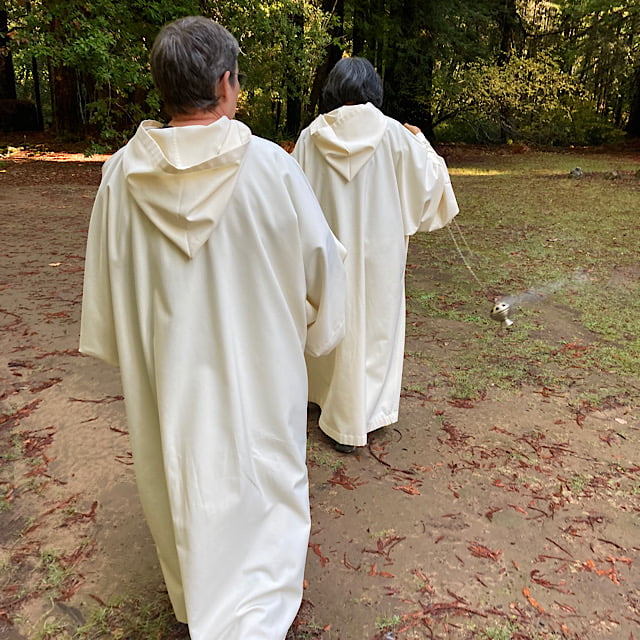Chapter Talk – 32nd Sunday of the Year – November 7, 2021, cycle-B
The gospel of this Sunday offers a paradox: giving from one’s poverty is praised over giving from one’s abundance. Let us apply this to ourselves. What does it mean for each of us to give from our poverty? And what is that ‘poverty’ within each of our lives? ‘She, from her poverty, put in everything she had…’ Within each of our lives is this inner dynamic: we have both riches and we have very little, we have a vulnerable, wounded place that can often make us feel of no worth. And the paradox is that God wants us to give from this seemingly place of nothing, of poverty, of weakness. This is our ‘one talent’ place…To give from what little we have is praised in the gospel by Jesus.
If we would look at the motivation for the poor widow’s giving, then, I think, we can see how ‘rich’ her gift was. She was ready to give ‘all’ for the sake of the kingdom of God, for living into the proclamation of God’s kingdom embodied by Jesus. In the reading we had from Fr. André Louf at vigil, he writes: “It will always remain hard and even painful for us to give from our poverty” (Mercy In Weakness, p.29). Let us ponder why this is so. We are comfortable with our gifts; we feel a certain security in offering them freely…but God wants more…Here is Louf’sanswer to why it is so difficult to give from our ‘poverty’. He writes: “To give from our poverty means, first of all, to know that we are poor, that we have discovered in ourselves the wound for which no one is responsible but which for ever makes us utterly poor indeed, poor to a degree that we would not dare to admit to ourselves” (p.29).
Knowing we are poor interiorly, discovering a wound, the wound which has immense possibility to become a source of new life, of creativity, of blessing a hundred-fold. The poverty of the wound…I think we all have had experience of this. It comes in such forms as: ‘I can’t’; ‘I am not worthy’; ‘I feel worthless’; ‘I have nothing to give’. We can add more shades of these ‘voices’ that plague us in different moments during a day and even a lifetime. However, if we encounter Jesus, how will he look upon the humble offering coming from our poverty? He will not only shower love upon us, but he will accept us in our totality, with both our strengths and weaknesses. We are called in the gospels to ‘love with all’, to love with our totality, and this does not exclude our poverty, a poverty that is the wound, we all have.
A further thought: the orientation of our daily lives is built mainly on our strengths. This living structure that shapes how we live, makes us feel the power of our choices. This is all good. However, the downside is that we can use our strengths to ‘control’ or try to control reality. And, then, ‘control’, it seems to me, is one of the main ways that we keep our weakness lyinghidden in our depths. In controlling, what are we afraid of? What is beneath this tight-fisted energy? As we surrender control, notice what happens to the heart. It softens, it opens wider than it was a minute ago, we feel looser, more relaxed, and we sense more a fuller and truer self. This ‘poverty’ linked to our wound has much to give. And in the eye and heart of God we are giving something precious, so precious that we have found a purer and truer sense of who we are. And this finding is worth everything for God, for in our FULL humanity, throughboth our weaknesses and strengths, we radiate the face of God.
Sr. Kathy DeVico, Abbess


